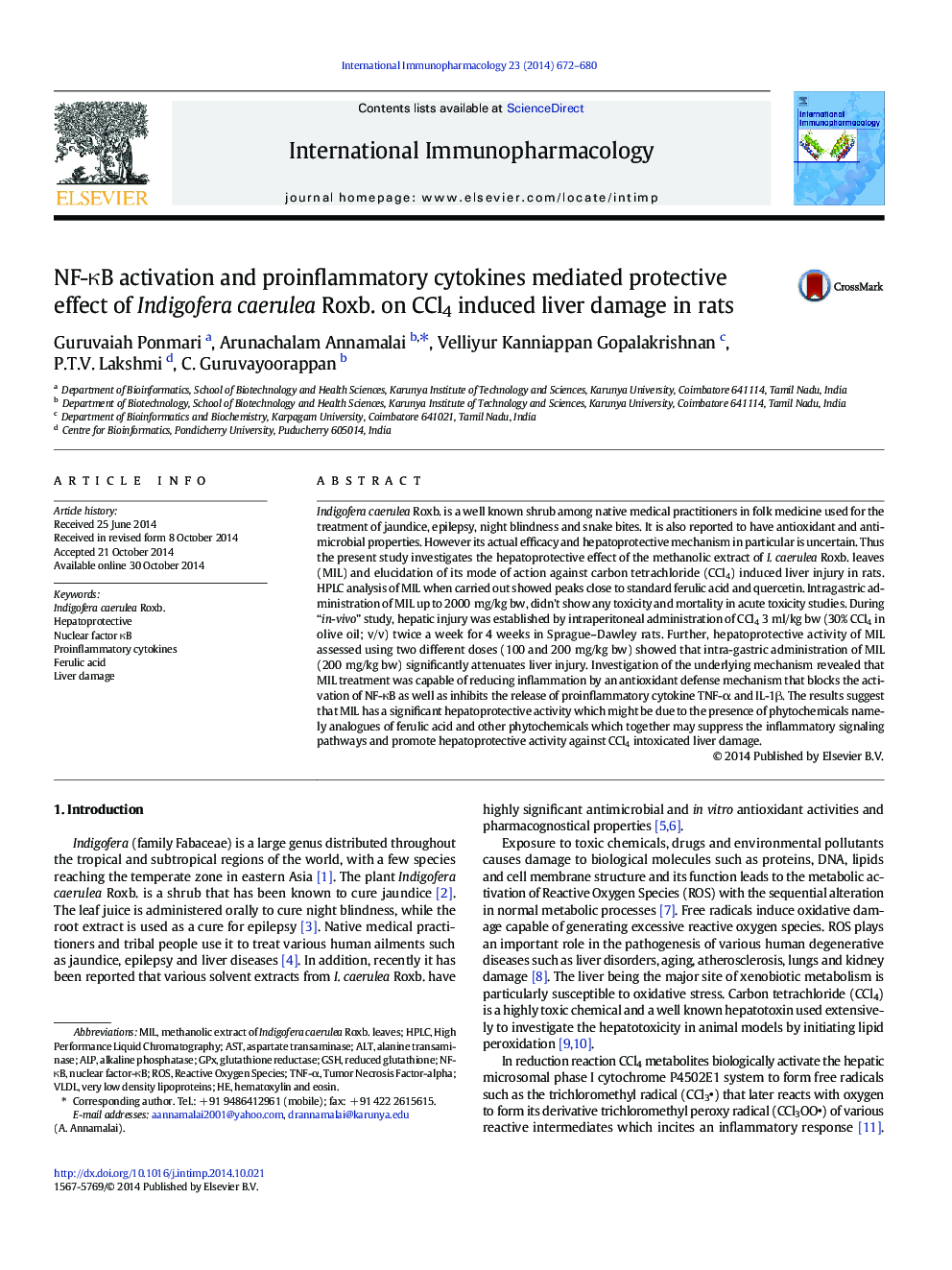| کد مقاله | کد نشریه | سال انتشار | مقاله انگلیسی | نسخه تمام متن |
|---|---|---|---|---|
| 5832607 | 1122602 | 2014 | 9 صفحه PDF | دانلود رایگان |

- HPLC analysis of MIL shows major presence of ferulic acid with other phenolic compounds.
- MIL suppresses the activation of NF-κB and controls the expression of TNF-α and IL-1β.
- The first report on the pharmacological activity of Indigofera caerulea Roxb.
Indigofera caerulea Roxb. is a well known shrub among native medical practitioners in folk medicine used for the treatment of jaundice, epilepsy, night blindness and snake bites. It is also reported to have antioxidant and antimicrobial properties. However its actual efficacy and hepatoprotective mechanism in particular is uncertain. Thus the present study investigates the hepatoprotective effect of the methanolic extract of I. caerulea Roxb. leaves (MIL) and elucidation of its mode of action against carbon tetrachloride (CCl4) induced liver injury in rats. HPLC analysis of MIL when carried out showed peaks close to standard ferulic acid and quercetin. Intragastric administration of MIL up to 2000 mg/kg bw, didn't show any toxicity and mortality in acute toxicity studies. During “in-vivo” study, hepatic injury was established by intraperitoneal administration of CCl4 3 ml/kg bw (30% CCl4 in olive oil; v/v) twice a week for 4 weeks in Sprague-Dawley rats. Further, hepatoprotective activity of MIL assessed using two different doses (100 and 200 mg/kg bw) showed that intra-gastric administration of MIL (200 mg/kg bw) significantly attenuates liver injury. Investigation of the underlying mechanism revealed that MIL treatment was capable of reducing inflammation by an antioxidant defense mechanism that blocks the activation of NF-κB as well as inhibits the release of proinflammatory cytokine TNF-α and IL-1β. The results suggest that MIL has a significant hepatoprotective activity which might be due to the presence of phytochemicals namely analogues of ferulic acid and other phytochemicals which together may suppress the inflammatory signaling pathways and promote hepatoprotective activity against CCl4 intoxicated liver damage.
Journal: International Immunopharmacology - Volume 23, Issue 2, December 2014, Pages 672-680